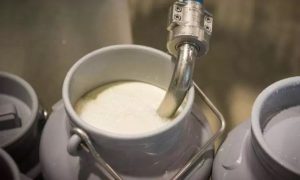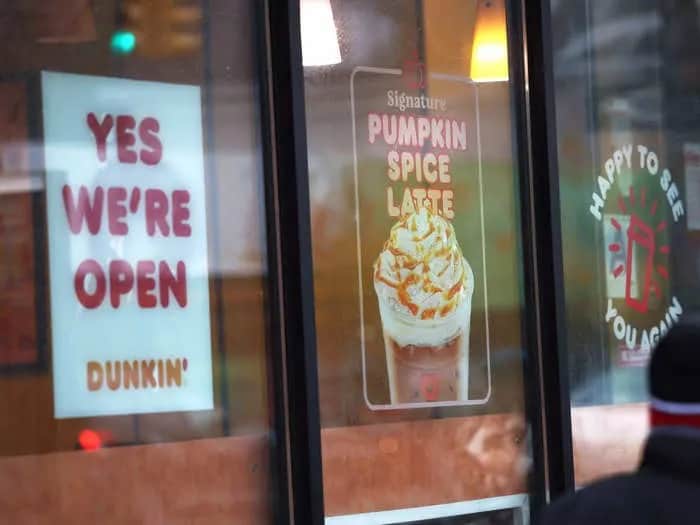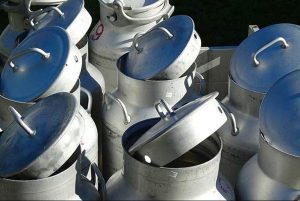
- Dunkin’ is being sued in the US by 10 plaintiffs who are lactose intolerant and have milk allergies.
- The plaintiffs were charged extra for requesting non-dairy milk alternatives in its stores in the period since 2018.
Dunkin’ is facing a $5 million class action lawsuit based on claims that it discriminates against customers with lactose intolerance and milk allergies by charging them extra for non-dairy milk alternatives.
A group of 10 Plaintiffs across the US accused the coffee giant of charging an extra $0.50 to $2.15 for non-dairy milk alternatives in drinks, according to the lawsuit filed in the District Court in Northern California and viewed by Business Insider. The plaintiffs sought to represent all customers who faced this surcharge.
The plaintiffs — who suffer from lactose intolerance and milk allergies — have all ordered coffee-based drinks, tea-based drinks, and other beverages that contained non-dairy milk like soy, oat, coconut, or almond milk from Dunkin’ stores since 2018.
“It is medically necessary for persons like Plaintiffs to avoid consuming drinks that contain milk,” the lawsuit states. “Plaintiffs will suffer adverse health effects if they ingest milk or milk-containing products, including stomach pain, digestive tract inflammation, bloating, bowel irregularities and vomiting.”
The lawsuit explained that the company doesn’t charge extra to make caffeine-free drinks for people with conditions like hypertension. Additionally, it removes sugar or uses sugar-free alternatives with no extra costs for customers with diabetes.
The lawsuit states: “Defendant’s Surcharge is the same for all Non-Dairy Alternatives, making no distinction among the costs of the various different Non-Dairy Alternatives. In fact, Dunkin created a separate, higher-priced menu, aimed at customers who cannot ingest milk.”
It continued that lactose intolerance and milk allergies are both considered disabilities and extra costs levied on by Dunkin’ “violates the Americans with Disabilities Act,” and is considered discrimination as a result.
The company’s revenue in 2021 was over $1.4 billion which means it has the power to control these manufacturing costs for non-dairy milk alternatives, the lawsuit says.
“Plaintiffs also seek declaratory and injunctive relief to ensure that Defendant charges the same price to lactose intolerant customers and customers with milk allergies for the same menu items as regular customers and that it does not add a Surcharge for Non-Dairy Alternatives such as soy, almond, coconut, oat, or other lactose-free ‘milk.'”
Starbucks also came under fire in 2020 for imposing a “tax” which charged people extra for seeking non-dairy milk alternatives for ethical, environmental or medical reasons. The animal rights group PETA and vegans protested against the charges across the US.
The company has made some strides since then by dropping the charges in parts of Europe including the UK, France, and Germany. But customers in the US still have to pay extra.

















